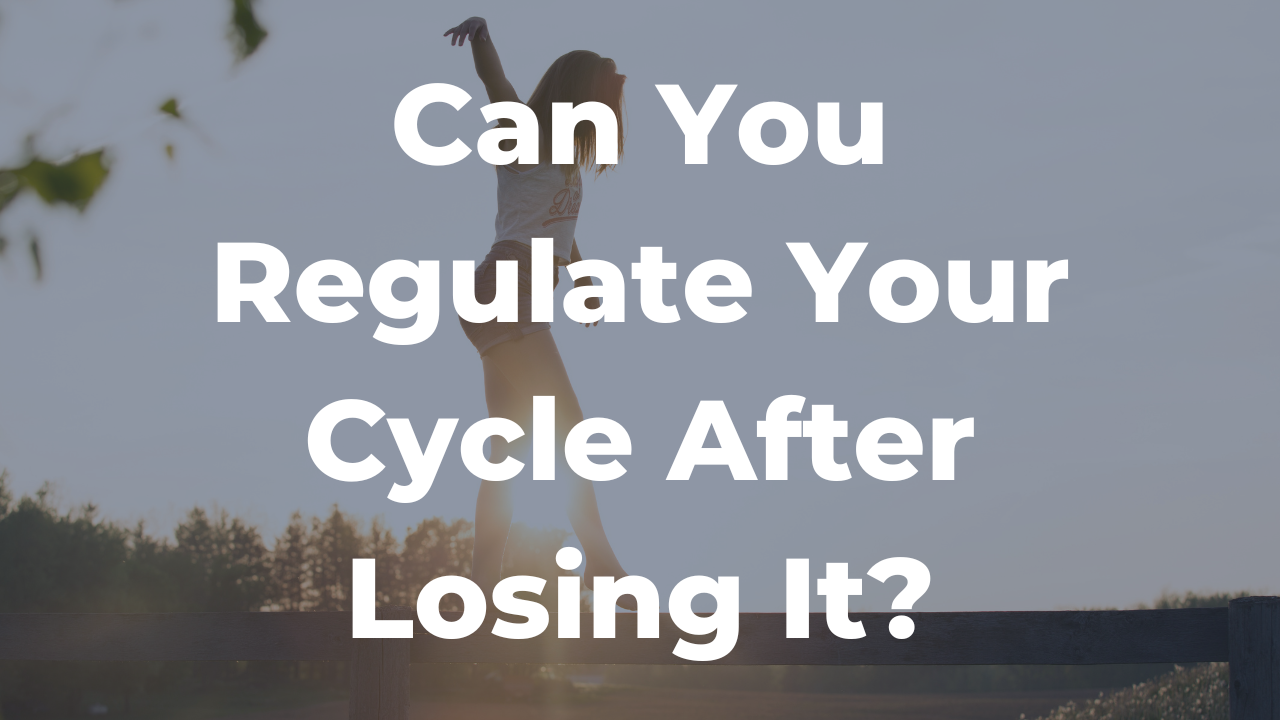Can you regulate your period after years of losing it?
Jul 25, 2022
A common question we get asked is can you regulate your period after years of not having one with PCOS?
And the short answer is yes! Our bodies are very adaptable and if given the right tools and environment can thrive!
However, the long answer is…
It depends on a wide variety of factors including your age, your egg quality and quantity as these generally decrease as we age.
Having said that, there are things we can do to help protect both our ovaries and follicles against oxidative stress which is responsible for the damage. These things include, but are not limited to, balancing blood sugars, exercising regularly, getting adequate sleep, reducing/cutting out smoking and adding in supplements to help with free radicals e.g., Co-Q10, Quercetin and NAC.
But before we get into the various forms of treatment, there are some important questions to ask yourself in regards to why you are not getting your period:
- Are you pregnant?
- Is your thyroid playing up?
- Do you have insulin resistance?
- Are you not eating enough or eating too much of the ‘wrong’ stuff?
If you answered no to the above questions, here are a few options for your next step including medical, natural and holistic approaches.
What can I do?
Medically
Medically it depends on the root cause of your lost period.
It is advised if you have lost your period for more than 3 cycles or 6 consecutive months that you need medical investigation. They need to check the function of your thyroid, brain, ovaries, pancreas and adrenal glands. An issue with one of these could be the cause of your symptoms and you need to exclude this before progressing.
If the cause is non life threatening, you will usually be given ‘the pill’ to ‘regulate’ your cycles, remember this gives you a fake period.
You should also be given medication to treat the underlying cause of your lost period, this may include things like metformin in the case of insulin resistance, however it depends on the specific cause of your lost period.
Naturally
Focus on the Fundamentals:
- Micro and Macro nutrients
Your macronutrients consist of three different categories, protein, carbs and fats. Neither of the three are more important than the other as they all have very different and specific roles to carry out in our bodies. This is why having a balance of all three are super important to help regulate your hormones and therefore support a healthy menstrual cycle.
As for micronutrients this refers to your vitamins and minerals. In order to ensure you are getting the full range of micronutrients, it is important to have variety and colour in your diet. While you can supplement these, consuming them through food sources is always best to do first! - Balance blood sugars
This is super important, not only for your hormonal health but your overall health as well! The best tip for balancing blood sugars, alongside consuming a balance of all three macronutrients, is eating every 2-3 hours!
When you go long periods without food, our blood glucose (also known as sugar) levels drop. You know that 3pm reach for a choccie or a quick sugary fix? Yes, that can actually be avoided by consistently fuelling your body with carbs, protein and fats! - Regulate your nervous system
Now balancing your blood sugars will definitely help regulate your nervous system as well but we also want to be implementing other ways to manage stress. You see stress or stressors in your life, which come in many different forms i.e., physical, emotional and mental, place a lot of work on your nervous system. This is why implementing different strategies such as regular exercise, spending time in nature, journaling, stretching, meditating or simply having lunch with a friend can be great ways to let your nervous system calm down. Which in return has a calming effect on your hormones, therefore your menstrual cycle. - Support your metabolism
This can be done through a number of different ways including a balance of your macro- and micronutrients, eating every 2-3 hours and by eating within the first hour of waking!
Yep, you heard us. Think about your metabolism as a fire, the more frequently you put smaller logs onto the fire, the longer it will continue to burn. Those logs are your meals! Remember, when you wake up, you are already starting in a caloric deficit because you have just been asleep!
After all, there is a reason we call it breakfast because that is exactly what you are doing. Breaking the fast. This helps get your metabolism going for the day, it is putting fuel to the flames and eating every 2-3 hours is helping keep that flame alive! When you support your metabolism, it will help support your hormones!
Integrative
When our blood tests come back as ‘normal’ this doesn’t necessarily mean we are healthy, and functioning optimally.
It just means we don’t need medication or surgery to survive. This is great news, but still doesn’t help us with the annoying symptoms that we’re struggling with.
So here is where the integrative approach shines.
Once you have been given the all clear from your blood tests, it’s time to focus on the function of your body:
- Implement the fundamentals listed above
- If after doing this for 1 month you notice no change or if you have significant symptoms
- Consider booking an integrative appointment, we can’t tell you what you need, because everyone is different. Undertaking specific history and examination helps us tailor the treatment to your core dysfunctions. This may include further functional testing like a hair test, or specific guidance on supplements and lifestyle.

